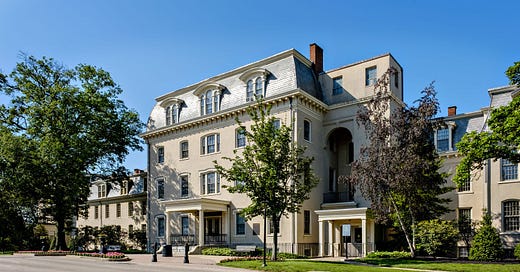This post is dedicated to the wonderful professionals at Friends Hospital in Philadelphia. for my family, these Sunday drives were the beginning of a long journey that ended with Ron's death.
A Sunday Drive
“That’s ten points!” shouts Allen from the backseat of my father-in-law’s Ford Focus. “No, wait. Its back window is broken! Two more points!” He gives a fist pump in the air; he is winning a game only he cares about.
But my daughter, his older sister, says, “Great job, Allen!” Sometimes she’s a better mother than me. She writes the information carefully into the black and white copy book where she tracks the points each week: car make and color, location, condition and how long it’s been on the side of the road. It’s a bizarre game she invented to keep her 11-year old brother occupied on each Sunday’s drive up Route 476 and along the Schukyl River as we negotiate our way into North Philadelphia.
I smile at the duo in the backseat. They’re good kids and they don’t complain that for the last five weeks their Sunday afternoons have been taken over by this long drive. In between Sundays, we live a peaceful life. No fists pound on the furniture or the walls, no shouting voices send Allen scurrying under his bed, no tears fall from sixteen year old Bonnie’s eyes when she comes home from her counselor job at summer camp. Our little house is quiet.
Sundays are not.

Invisible Illness
“Is he getting better?” my father-in-law asks as he shifts lanes onto Roosevelt Boulevard. “Can he come home soon? What do the doctors say?” The barrage of questions I have no answers for has been nonstop for forty minutes. What he wants to hear, of course, is that the strange and unseen malady which struck my husband is curable. To Reese, Ron’s wellness should be based on temperature and blood pressure.
But that’s not what’s broken.
“I just don’t get it,” says Reese. He takes his eyes off the road for a moment and glares at me. “Were the two of you fighting? Is that what happened?”
I shake my head. I have already answered the question multiple times, on multiple drives. At home, I kept my voice low and quiet, I shooed the kids into another room when Ron exploded into anger or tears. I protected them from what my oldest son, at college for the summer, called “the live grenade that is Dad.”
No one protected me.
Reese continues to glare at me. His message is clear. Somehow, this is my fault. Something I did, something I said, or maybe something I didn’t do or say caused his son to become violent at his job, threatening fellow employees and requiring sedation from an ambulance crew. There has to be a reason.
“It was just so sudden,” Reese mumbles and turns his eyes back to the road.

Broken Pieces
But it wasn’t sudden. My husband broke one piece at a time. He would shake me awake at night to tell me he was scared; he’d go out back to shoot basketballs at midnight. He’d cry at movies, and sit on the front step for hours, not moving. He’d shout at the kids for no reason, then apologize with ice cream. We lived on a precipice for months. In many ways, Ron’s breakdown is a relief. A respite. A chance to catch our breaths.
While Allen continues to identify “broken” cars, I gaze out the passenger side window. We are getting close to Friends’ Hospital where Ron has resided in Tuke Hall for the past five weeks, surrounded by 100 acres of woods and open lawns, what the website calls, “a rural oasis in an urban setting.”
I pray it will heal Ron's broken mind.

Shining in the Break
The entrance drive is coming up, a break in the stone wall that surrounds the psychiatric hospital. Allen lays a hand on my shoulder. I think touching me–something he avoids–means he knows we are approaching the place where he will, yet again, see his once strong father in his confused state. I turn to reassure him that things will be alright.
But Allen shakes his head. He is pointing to another abandoned car by the side of the road. The tail lights are shattered. “That’s pretty, Mom,” he says and I suddenly see what he sees: the sun shining through the glass, casting rainbow images over the road. “It’s neat that something so broken can be so pretty,” he says.
He is right and I feel tears prick at my eyes.
Sometimes we need to break to shine.
If you or someone you love struggles with mental illness, please reach out for help.





This is really beautiful, so glad I read this today.